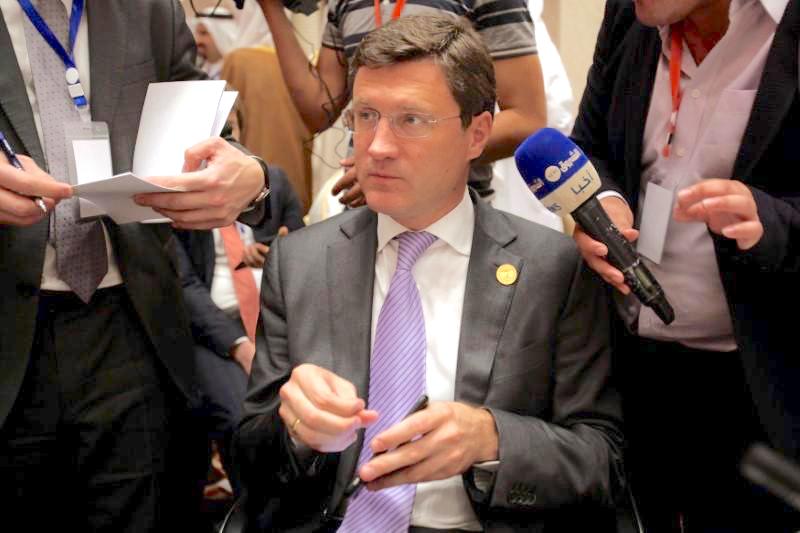Russia expects OPEC to reach oil-cut deal as group meets in Vienna Thursday
November 29, 20171.8K views0 comments
Alexander Novak, Russia’s Energy Minister expects OPEC and its allies to reach a decision on Thursday, Nov. 30 to extend their pact to curb oil output as signs of a growing consensus emerged with the cartel’s biggest producer Saudi Arabia.
According to Bloomberg’s report, the energy minister said, in Vienna on Wednesday, that “we have reached in general a mutual understanding” on the future of the deal. “I think we will have” a decision on an extension tomorrow.
Novak’s comments were echoed in the Austrian capital by his Saudi Arabian counterpart Khalid Al-Falih, who praised the “solid results” achieved, but added that “a good deal more hard work and commitment is essential.”

The two key decision makers spoke in a preparatory meeting ahead of Thursday’s ministerial gathering. While the Organization of Petroleum Exporting Countries and its main ally Russia agree that oil production cuts are working and should be extended deeper into next year, Moscow is said to want clarity on how and when to end the curbs.
OPEC has agreed to discuss an exit strategy.
Oil prices poised for a pullback after OPEC announces its output cut decision this week
The oil-production cuts have been “fruitful” and participants were showing a “responsible approach,” Novak said. Details of the deal have still to be discussed, he said before a meeting of ministers in Vienna.
For Russia, an exit strategy seems to be as important as the duration of the extension, according to people involved in the closed-door negotiations. Its need for clarity is greater than most OPEC members because its economic policy making is more complex, including a floating exchange rate that fluctuates with the oil price.
Moscow also wants a schedule of how the cuts will end so it can guide privately-owned Russian oil companies and their foreign partners about future output, the people said, asking not to be named because the talks are private. Most OPEC members have a single national oil company that answers to the government.
Igor Sechin, the chief executive officer of state-run Rosneft PJSC, and Lukoil PJSC’s billionaire boss Vagit Alekperov have questioned the wisdom of prolonging the deal when oil prices are already above $60 a barrel. Benchmark Brent traded at $63.47 as of 2:35 p.m. in London.
Russia is “unlike OPEC countries that have national oil companies, and therefore are able to turn on and off production easier,” said Amrita Sen, chief oil analyst at consultant Energy Aspects Ltd. in London. Moscow needs to plan a bit more given the involvement of several different producers, she said.
Saudi Arabia’s Al-Falih called for the oil producers to redouble their efforts.
“The job is not done,” he said. “We will need the full commitment of all countries. While I want to congratulate and thank the over-performing members for their dedication — we have a few countries that have consistently over delivered their commitment — I also want to take the opportunity to urge those few under-performing countries to catch up.”
